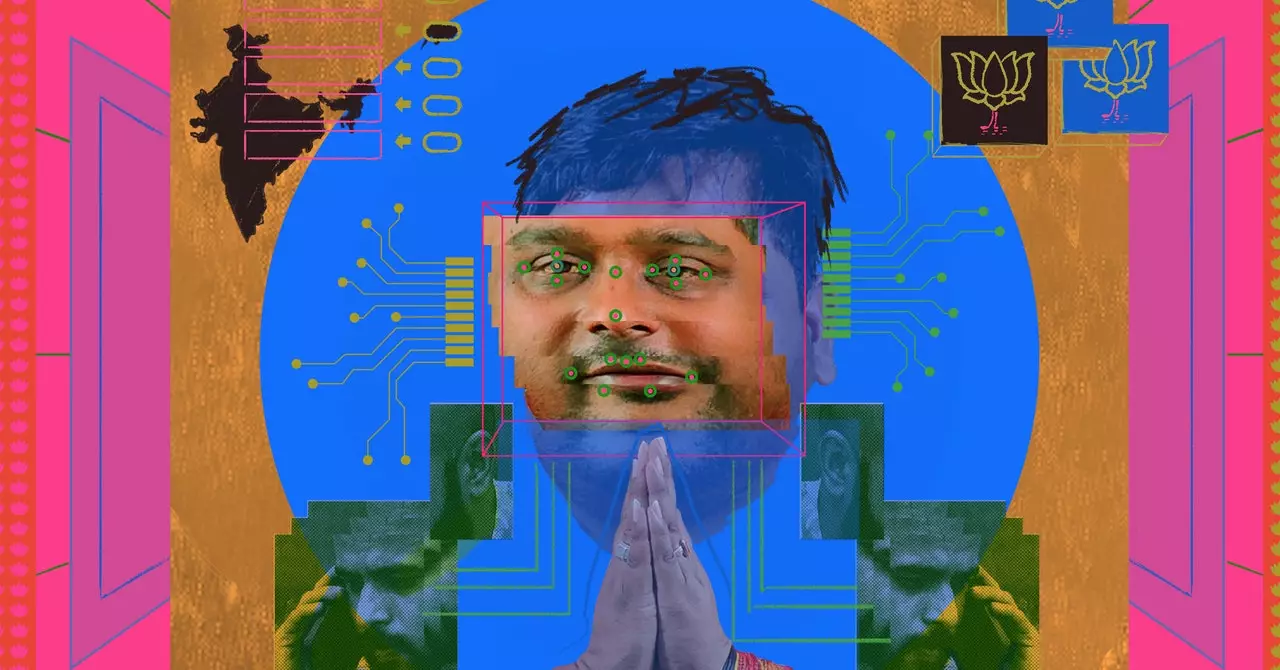The political landscape in India is rapidly evolving, with the use of artificial intelligence (AI) deepfakes becoming a prevalent strategy for voter outreach. This technology has enabled politicians to reach a wider audience in a more personalized manner, tapping into the nation’s diverse linguistic and cultural landscape. While the global conversation around deepfakes often revolves around misinformation and societal harm, in India, it has been harnessed for political advantage.
The Role of AI Deepfakes in Indian Elections
The ongoing general election in India has seen a significant reliance on AI-generated content by political parties. Deepfakes have been deployed to create personalized messages for voters, leveraging the technology to navigate the country’s 22 official languages and thousands of regional dialects. This approach has enabled politicians to connect with voters in remote areas and convey customized messages that resonate with their concerns and preferences.
The deepfake industry in India has seen a surge in demand, with companies like Polymath Synthetic Media Solutions offering AI services to political clients. Companies like Polymath have capitalized on this opportunity, providing deepfake campaigns for prominent politicians at a fraction of the cost charged by traditional consultants. The commercialization of deepfake technology has turned it into a lucrative business, with millions of AI-generated voice clone calls being made in the lead-up to the elections.
Deepfakes have revolutionized the way political campaigns are conducted in India, offering a more efficient and cost-effective method of voter outreach. Politicians like Shakti Singh Rathore have benefitted from this technology, using AI clones to deliver personalized messages to voters on a mass scale. The ability to engage voters through AI-generated content has streamlined the campaigning process and enabled politicians to target specific demographics with tailored messaging.
While AI deepfakes have proven to be a powerful tool for political campaigns, they also raise ethical concerns regarding the manipulation of public perception. The use of deepfake technology to create false narratives or spread disinformation poses a threat to the democratic process. As the technology continues to advance, policymakers and regulators must address the potential risks associated with deepfakes and establish guidelines for their responsible use in electoral campaigns.
As the use of deepfake technology becomes more widespread in Indian politics, it is crucial to consider the long-term implications of its integration into the electoral process. While AI offers exciting opportunities for voter engagement and outreach, it also presents challenges in terms of transparency and accountability. Moving forward, it will be essential for policymakers, technologists, and political actors to collaborate in establishing a framework for the ethical use of deepfakes in political campaigns.
AI deepfakes have emerged as a game-changing tool in India’s political landscape, enabling politicians to connect with voters in innovative ways. While the technology holds immense potential for fostering democratic engagement, it also demands careful consideration of its ethical and regulatory implications. By striking a balance between innovation and responsibility, deepfakes can continue to shape the future of political communication in India.


Leave a Reply